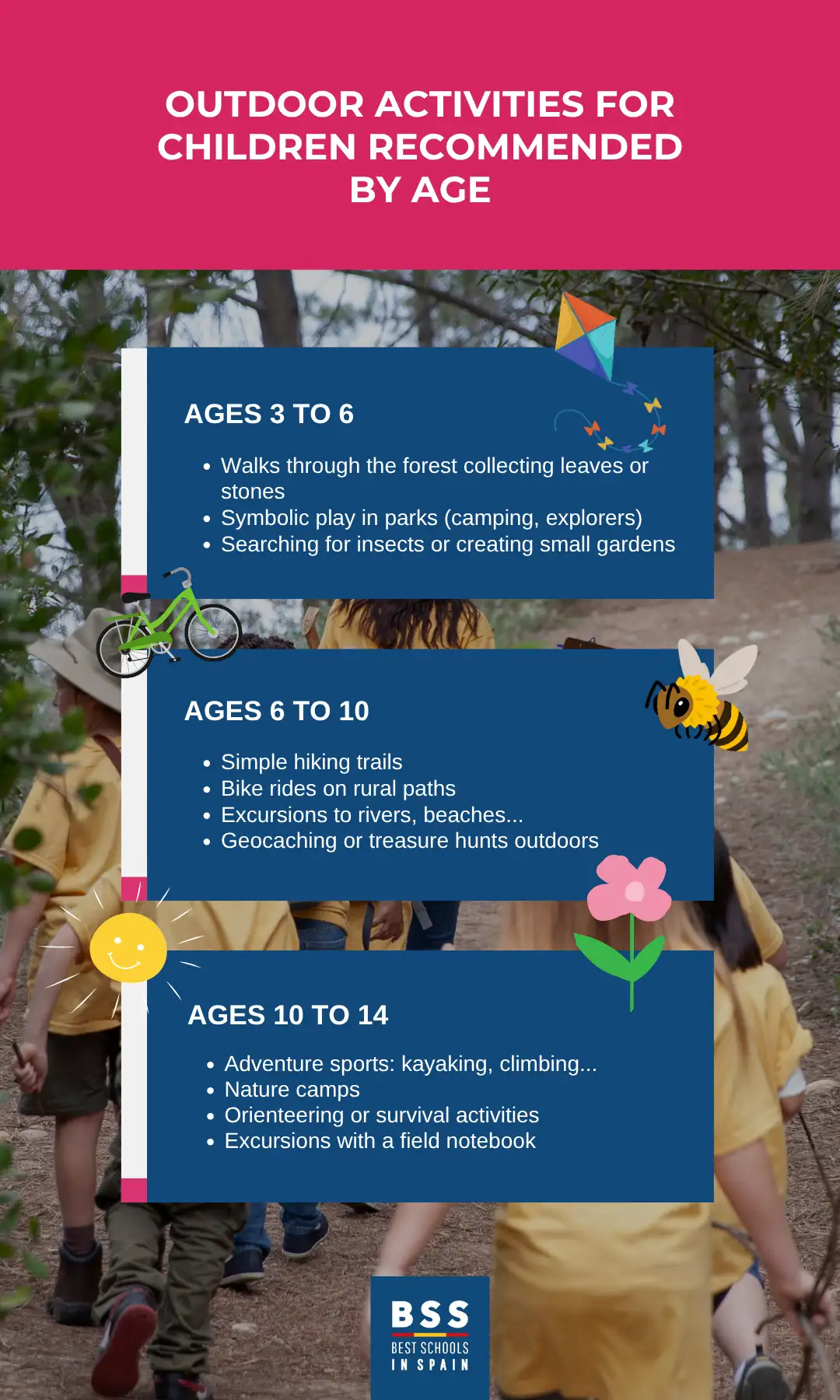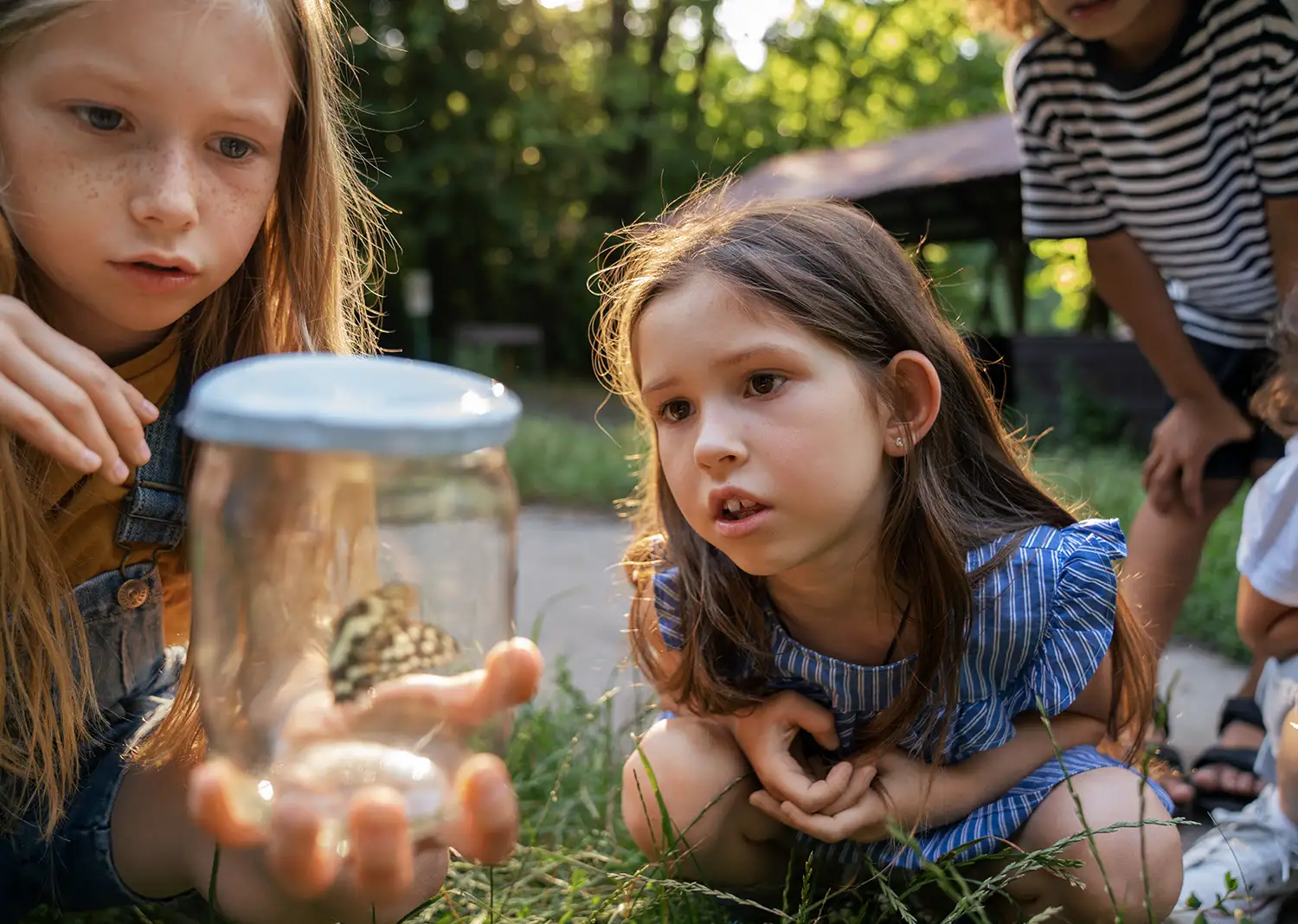The importance of outdoor activities for children: physical and emotional development
Childhood is a key stage for establishing habits that promote a healthy life. In this context, outdoor activities for children not only provide evident physical benefits but are also essential for their emotional and social wellbeing. In a society where screen time has significantly increased, going outside, moving, breathing fresh air, and connecting with nature has become an urgent need.
At Best Schools in Spain (BSS) schools, education is understood as an integral process. This is why active contact with the natural environment is promoted as part of the student’s overall development. It is not only about physical activity but also personal growth, emotional management, autonomy, and relationships with others.
Physical benefits of outdoor activities
Exercising in nature is much more than just “moving.” It has a direct impact on the child’s developing body and overall health. Some of the most notable advantages include:
Improved motor coordination, balance, and strength
Strengthened immune system and reduced risk of respiratory diseases
Helps prevent sedentary behaviour and childhood obesity
Stimulates appetite and regulates sleep
Promotes bone and muscle development
Activities such as hiking, swimming in the sea or river, cycling, or free play in the fields allow the body to express itself freely and strengthen on all levels.
Emotional and social impact: playing in nature also heals
The natural environment offers unique conditions for emotional development. Various studies link contact with nature to improvements in emotional regulation, concentration, and self-esteem.
Emotional and social benefits of outdoor play:
Reduces stress and anxiety levels
Increases attention span and memory
Improves frustration tolerance and emotional management
Promotes collaboration, respect for turns, and empathy
Strengthens family bonds by sharing activities outside the home
Nature acts as an emotional regulator: its slower pace, gentle stimuli, and unpredictability allow children to disconnect from digital overstimulation and reconnect with their bodies and emotions.

Outdoor activities for children recommended by age
It is important to adapt the activities to the child’s developmental level. Here are some ideas organised by age groups:
Ages 3 to 6:
Walks through the forest collecting leaves or stones
Symbolic play in parks (camping, explorers)
Searching for insects or creating small gardens
Ages 6 to 10:
Simple hiking trails
Bike rides on rural paths
Excursions to rivers, beaches, or natural environments with adapted challenges
Geocaching or treasure hunts outdoors
Ages 10 to 14:
Adventure sports: kayaking, climbing, paddleboarding
Nature camps
Orienteering or survival activities
Excursions with a field notebook to observe wildlife and flora
Many international BSS schools organise these types of activities both inside and outside the school year, recognising their pedagogical and emotional value.
Exercise in nature and mental health: a key link
The connection between exercise in nature and children’s mental health is clear and increasingly studied. Time spent outdoors:
Stimulates the production of serotonin and dopamine, neurotransmitters associated with wellbeing
Encourages creativity and problem-solving
Creates a safe space to express emotions and overcome fears
Reduces the impact of disorders such as ADHD or anxiety in school contexts
Incorporating regular outings to the natural environment — even if brief — can make a significant difference in the emotional state of children and adolescents.
More nature, more balance
Outdoor activities for children are much more than a recreational resource: they are a vital necessity in modern development. In an era marked by stress, sedentary lifestyles, and excessive screen time, going outside is not an option but a commitment to the wellbeing of future generations.
At Best Schools in Spain, we encourage families to integrate nature into their daily lives and to value exercise as a tool to care for both body and mind. BSS-certified schools understand this: the environment is a living classroom, and every experience outside the classroom is an opportunity for growth.
Would you like your children to learn in contact with nature every week? Discover our schools at www.bestschoolsinspain.com



